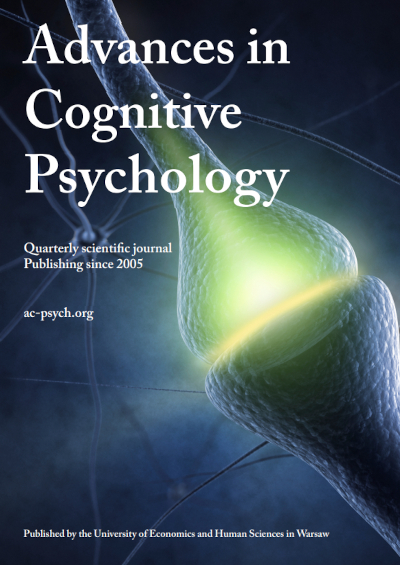Archive of all online content
-
Volume 21 Issue 4
pp. 309-500
(16 November 2025) -
Volume 21 Issue 3
pp. 212-308
(2 September 2025) -
Volume 21 Issue 2
pp. 120-211
(25 May 2025) -
Volume 21 Issue 1
pp. 1-93
(11 March 2025)
-
Volume 20 Issue 4
pp. 237-388
(20 November 2024) -
Volume 20 Issue 3
pp. 158-236
(19 August 2024) -
Volume 20 Issue 2
pp. 80-157
(24 June 2024) -
Volume 20 Issue 1
pp. 1-79
(1 March 2024)
-
Volume 19 Issue 4
pp. 1-105
(27 December 2023) -
Volume 19 Issue 3
pp. 211-333
(25 July 2023) -
Volume 19 Issue 2
pp. 111-200
(30 June 2023) -
Volume 19 Issue 1
pp. 1-110
(31 March 2023)
-
Volume 18 Issue 4
pp. 243-303
(31 December 2022) -
Volume 18 Issue 3
pp. 165-202
(30 September 2022) -
Volume 18 Issue 2
pp. 85-164
(30 June 2022) -
Volume 18 Issue 1
pp. 1-84
(31 March 2022)
-
Volume 17 Issue 4
pp. 250-291
(31 December 2021) -
Volume 17 Issue 3
pp. 193-249
(30 September 2021) -
Volume 17 Issue 2
pp. 99-192
(30 June 2021) -
Volume 17 Issue 1
pp. 1-98
(31 March 2021)
-
Volume 16 Issue 4
pp. 291-369
(31 December 2020) -
Volume 16 Issue 3
pp. 176-290
(30 September 2020) -
Volume 16 Issue 2
pp. 85-175
(30 June 2020) -
Volume 16 Issue 1
pp. 1-84
(31 March 2020)
-
Volume 15 Issue 4
pp. 236-317
(31 December 2019) -
Volume 15 Issue 3
pp. 169-235
(30 September 2019) -
Volume 15 Issue 2
pp. 75-168
(30 June 2019) -
Volume 15 Issue 1
pp. 1-74
(31 March 2019)
-
Volume 14 Issue 4
pp. 150-208
(31 December 2018) -
Volume 14 Issue 3
pp. 62-150
(30 September 2018) -
Volume 14 Issue 2
pp. 38-61
(30 June 2018) -
Volume 14 Issue 1
pp. 1-37
(31 March 2018)
-
Volume 13 Issue 4
pp. 267-322
(31 December 2017) -
Volume 13 Issue 3
pp. 190-266
(30 September 2017) -
Volume 13 Issue 2
pp. 121-189
(30 June 2017) -
Volume 13 Issue 1
pp. 1-120
(31 March 2017)
-
Volume 12 Issue 4 (special issue)
pp. 150-235
(31 December 2016) -
Volume 12 Issue 3
pp. 130-149
(30 September 2016) -
Volume 12 Issue 2
pp. 67-129
(30 June 2016) -
Volume 12 Issue 1
pp. 1-66
(31 March 2016)
-
Volume 11 Issue 4
pp. 118-135
(31 December 2015) -
Volume 11 Issue 3
pp. 64-117
(30 September 2015) -
Volume 11 Issue 2
pp. 31-63
(30 June 2015) -
Volume 11 Issue 1
pp. 1-30
(31 March 2015)
-
Volume 10 Issue 4
pp. 119-155
(31 December 2014) -
Volume 10 Issue 3
pp. 81-118
(30 September 2014) -
Volume 10 Issue 2
pp. 32-80
(30 June 2014) -
Volume 10 Issue 1
pp. 1-31
(27 February 2014)
-
Volume 9 Issue 4
pp. 156-223
(31 December 2013) -
Volume 9 Issue 3
pp. 112-155
(24 October 2013) -
Volume 9 Issue 2
pp. 53-111
(30 June 2013) -
Volume 9 Issue 1
pp. 1-52
(31 March 2013)
-
Volume 8 Issue 4
pp. 267-295
(31 December 2012) -
Volume 8 Issue 3
pp. 210-266
(27 September 2012) -
Volume 8 Issue 2
pp. 70-209
(28 June 2012) -
Volume 8 Issue 1
pp. 1-69
(29 March 2012)
-
Volume 7 Issue 2
pp. 55-156
(31 December 2011) -
Volume 7 Issue 1
pp. 1-54
(31 March 2011)
-
Volume 6 Issue 6
pp. 1-141
(31 December 2010)
-
Volume 5 Issue 5
pp. 1-134
(31 December 2009)
-
Volume 4 Issue 1
pp. 1-14
(31 March 2008)
-
Volume 3 Issue 4
pp. 419-465
(31 December 2007) -
Volume 3 Issue 3
pp. 363-417
(30 September 2007) -
Volume 3 Issue 1
pp. 1-361
(31 March 2007)
-
Volume 2 Issue 4
pp. 239-276
(31 December 2006) -
Volume 2 Issue 2
pp. 99-237
(30 June 2006) -
Volume 2 Issue 1
pp. 1-97
(31 March 2006)
-
Volume 1 Issue 1
pp. 1-16
()
Volume 14 Issue 4 (2018)
Reasoning and Reading in Adults. A New Reasoning Task for Detecting the Visual Impendance Effect
Elpida Panagiotidou, Francisca Serrano, Sergio Moreno-Rios

Francisca Serrano, The Mind, Brain, and Behavior Research Center, (CIMCYC-UGR), University of Granada, Campus de Cartuja, 18017, Granada, Spain.
E-mail: fdserran@ugr.es
The visual impedance hypothesis states that at the time of reasoning, the reading context provokes visual images, which may add irrelevant details to an inference and thus could hamper reasoning. This study aims to create a new visual version of a reasoning task, similar to the traditional propositional task of relational syllogisms, but based on visuospatial components. Using such a task, it would be possible to investigate the deductive ability of relational inferences in tests without the need for reading. Two reasoning tasks were used and measures of working memory, visuospatial memory, intelligence, and reading comprehension were taken. The participants were 61 university students without reading difculties. Results show that both versions of the reasoning task work similarly in fnding the main reasoning effects expected. Findings support the visual impedance effect, that is, fewer correct responses in problems with imaginable contents than with neutral ones. They indicate that this new visual task could be used to explore reasoning skills without reading being involved, and this would be useful for testing reasoning in people both with and without reading difculties.
Keywords: visual impedance, transitive reasoning, visual deductive, task, reading difcultiesWhich Information Helps Resolve Recall Failures for Familiar People's Names?
Serge Brédart

Serge Brédart, Psychology and Neuroscience of Cognition Research Unit, University of Liège, Place des Orateurs, 2, 4000 Liége, Belgium.
E-mail: serge.bredart@ulg.ac.be
Personal names are particularly susceptible to retrieval failures. In the present paper, studies describing people’s spontaneous strategies for resolving failures in recalling personal names as well as laboratory studies of experimentally induced resolution of name recall failures are reviewed. The review indicates that people frequently use spontaneous strategies based on a search for structural, semantic, and contextual information about the target person. On the other hand, both cueing and priming experimental studies have shown that providing phonological information may help resolve a recall failure, whereas providing structural or semantic information is usually not helpful. A possible explanation of this discrepancy between the spontaneous use of semantic/contextual information and the experimentally demonstrated uselessness of this kind of information is provided. Finally, the role of syntactical similarity (belonging or not to the same part of speech) in the efciency of phonological priming is discussed.
Keywords: name retrieval; person naming; proper names; tipof-the-tongue; primingOuter and Inner Dimensions of Brain and Consciousness - Refining and Integrating the Phenomenal Layers
Johannes Wagemann, Friedrich Edelhäuser, Ulrich Weger

Johannes Wagemann, Alanus University of Arts and Social Sciences, Am Exerzierplatz 21, D-68169, Mannheim, Germany.
E-mail: Johannes.Wagemann@alanus.edu
In view of the unresolved mind–brain problem, we examine a number of prototypical research attitudes regarding the question, how the mental and the neuronal realms are related to each other, both functionally and ontologically. By discussing neurophilosophical and neuropsychological positions, the mind–brain problem can be recast in terms of a structural relation between methodological and content-related aspects. Although this reformulation does not immediately lead to a solution, it draws attention to the necessity of searching for a new way of balancing separating and integrating elements regarding content as well as method. As a relatively unknown alternative in this context we investigate an approach by the philosopher Rudolf Steiner. It comprises a first-person method, along with the theoretical background of what has come to be known as the mirror metaphor - an analogy for the brain as a necessary but not a sufcient basis for mental activity. Through a first-person study, this approach is scrutinized using volitionally controlled perceptual reversals. The results allow for a phenomenological distinction of processual phases which can be summarized as engaging and disengaging forms of mental activity. Finally, we initiate a discussion in view of related philosophical concepts and give an outlook on the next possible research steps.
Keywords: mind-brain-relation, mirror-metaphor, first-person method, functional layer theoryWhat Makes You Think That You Are a Health Expert? The Effect of Objective Knowledge and Cognitive Structuring on Self-Epistemic Authority
Yoram Bar-Tal, Katarzyna Stasiuk, Renata Maksymiuk

Katarzyna Stasiuk, Institute of Applied Psychology, Jagiellonian University, Łojasiewicza 4, 30-348, Kraków, Poland.
E-mail: katarzyna.stasiuk@uj.edu.pl
Self-epistemic authority (SEA) refers to the subjective judgement of the level of expertise and knowledge a person has in a given domain. While it is reasonable to assume that people's perception of SEA reflects their level of objective knowledge in the given domain, there is evidence to show that people are not optimal judges of their own knowledge. Thus, the present study examined the interaction between the participants’ trait-like characteristics of need for cognitive closure (NFC) and efficacy to fulfill the need for cognitive closure (EFNC), which affects the use of cognitive structuring, as a source of SEA. Results of the study confirm that objective knowledge as well as a cognitive-motivational epistemic process (interaction between NFC and EFNC) affect SEA. For high EFNC individuals, the effect of NFC on SEA was positive. However, for low EFNC individuals, the relationship was negative.
Keywords: self-epistemic authority, epistemic motivation, need for closure, efficacy to fulfil need for closure, objective knowledge, cognitive structuring, expertiseInfluence of the Spectral Quality of Light on Daytime Alertness Levels in Humans
Kamila Łaszewska, Agnieszka Goroncy, Piotr Weber, Tadeusz Pracki, Małgorzata Tafil-Klawe

Kamila Łaszewska, Department of Psychology, Faculty of Humanities, Nicolaus Copernicus University, Fosa Staromiejska 1a, 87-100 Toruń, Poland.
E-mail: kamila.laszewska@gmail.com
Exposure to light is very important for human health. However, the characteristics of the light stimulus and the appropriate timing of such exposure are essential. Studies that have used monochromatic light exposure have shown no systematic patterns for the effects of blue light compared to longer wavelengths. Previous studies have shown that red light exposure increases objective and subjective measures of alertness at night without suppressing nocturnal melatonin or inducing circadian disruption. The present study investigated whether noon time exposure to red light would increase both objective and subjective measures of alertness such as those measured by EEG, cognitive-behavioral performance, and subjective sleepiness. The three lighting conditions were as follows: dim light (< 0.01 lux at cornea), blue light (465 nm, 72 μW/cm2), and red light (625 nm, 18 μW/cm2), both at 40 lux. The results of the EEG data showed an increase in theta power over time in dim light only. In red light, alpha power showed a decrease over time. The impact of red light was observed in the performance measures: The only significant effect was a deterioration in the continuous performance test after red light exposure. Subjective measures of alertness were not affected by light in either condition, in contrast to darkness, when subjects reported greater sleepiness than before. None of the changes in objective measures of alertness induced by red light exposure translated into subjective sleepiness at noon. Thus, we concluded that behavioral effects of light at noon are very limited at best.
Keywords: light, daytime, alertness, performance, EEG


